Tapestry of Voices
Christopher Jessup composer
David Gaines composer
John Craven composer
Michael G Cunningham composer
L Peter Deutsch composer
Ryan Homsey composer
Hendrik Hofmeyr composer
Richard E Brown composer
TAPESTRY OF VOICES from Navona Records showcases the versatility and elegance of the human voice woven with grand orchestral statements, colorful choral arrangements, and intimate settings with piano. Eight contemporary composers offer settings of poetry and stories from various cultures throughout human history, from Africa to Europe, North America, and beyond. Threading modern takes on Greek mythology, meditations on concepts of loss, mortality, and more, TAPESTRY OF VOICES is exactly as its title suggests — an intricate and artistic convergence of ideas that’s sure to entrance those who experience it.
Listen
Stream/Buy
Choose your platform
Track Listing & Credits
| # | Title | Composer | Performer | |
|---|---|---|---|---|
| 01 | Astronomia: I. When I Heard the Learn'd Astronomer | Christopher Jessup | The Kühn Choir of Prague | Lenka Navrátilová, choirmaster | 4:19 |
| 02 | Ho, Mia Kor' | David Gaines | Bree Nichols, soprano; Alexandr Starý, piano | 3:57 |
| 03 | My Life Closed Twice | John Craven | Bree Nichols, soprano; Alexandr Starý, piano | 7:01 |
| 04 | Hymn – Mass: I. Lord, Have Mercy | Michael G Cunningham | The Kühn Choir of Prague | Lenka Navrátilová, choirmaster; Daniela Kosinová-Valtová, organ | 1:03 |
| 05 | Hymn – Mass: II. Glory to God | Michael G Cunningham | The Kühn Choir of Prague | Lenka Navrátilová, choirmaster; Daniela Kosinová-Valtová, organ | 1:50 |
| 06 | Hymn – Mass: III. Holy | Michael G Cunningham | The Kühn Choir of Prague | Lenka Navrátilová, choirmaster; Daniela Kosinová-Valtová, organ | 0:54 |
| 07 | Hymn – Mass: IV. The Lord's Prayer | Michael G Cunningham | The Kühn Choir of Prague | Lenka Navrátilová, choirmaster; Daniela Kosinová-Valtová, organ | 0:57 |
| 08 | Hymn – Mass: V. Lamb of God | Michael G Cunningham | The Kühn Choir of Prague | Lenka Navrátilová, choirmaster; Daniela Kosinová-Valtová, organ | 1:37 |
| 09 | The Voices of Creation | L Peter Deutsch | The Kühn Choir of Prague | Lenka Navrátilová, choirmaster | 3:06 |
| 10 | There Will Be Stars | L Peter Deutsch | The Kühn Choir of Prague | Lenka Navrátilová, choirmaster | 2:36 |
| 11 | Your Name | Ryan Homsey | Bree Nichols, soprano; Alexandr Starý, piano | 3:14 |
| 12 | Thula, Thu | Hendrik Hofmeyr | Bree Nichols, soprano; Alexandr Starý, piano | 3:41 |
| 13 | The Broken String | Hendrik Hofmeyr | Bree Nichols, soprano; Alexandr Starý, piano | 4:27 |
| 14 | The Poet’s Book of Wisdom: II. Daybreak | Michael G Cunningham | The Kühn Choir of Prague | Lenka Navrátilová, choirmaster; Marcel Javorček, piano | 2:32 |
| 15 | The Poet’s Book of Wisdom: III. Nature | Michael G Cunningham | The Kühn Choir of Prague | Lenka Navrátilová, choirmaster; Marcel Javorček, piano | 2:38 |
| 16 | The Poet’s Book of Wisdom: IV. Excelsior | Michael G Cunningham | The Kühn Choir of Prague | Lenka Navrátilová, choirmaster; Marcel Javorček, piano | 5:29 |
| 17 | The Poet’s Book of Wisdom: V. The Day is Done | Michael G Cunningham | The Kühn Choir of Prague | Lenka Navrátilová, choirmaster; Marcel Javorček, piano | 6:53 |
| 18 | The Torment of Medea | Richard E Brown | Janáček Philharmonic Ostrava | Jiří Petrdlík, conductor; Bree Nichols, soprano | 16:25 |
Astronomia
Recorded February 8, 2023 at The Chapel at Korunní in Prague, Czech Republic
Ho Mia Kor’, My Life Closed Twice, The Voices of Creation, There Will Be Stars, Your Name, Thula Thu, The Broken String, Torment of Medea
Recorded June 8, 13-16, 2023 at Vesmír Concert Hall in Ostrava, Czech Republic
Hymn – Mass, The Poet’s Book
Recorded Jan 19, 25, 2022 at The Chapel at Korunni in Prague, Czech Republic
Production Director Levi Brown
Session Producer
Jan Košulič (tracks 1-3, 9-13, 18)
Pavel Kunčar (tracks 4-8, 14-17)
Session Engineer
Aleš Dvořák (tracks 1-2, 4-8, 11, 14-18)
Pavel Kunčar (tracks 3, 12-13)
Adam Janků (tracks 2, 11, 18)
Editing & Mixing
Melanie Montgomery (tracks 2-8, 11-17)
Jan Košulič (tracks 1, 9-10)
Lucas Paquette (track 18)
Additional Editing & Mixing Melanie Montgomery (tracks 1, 9-10)
Mastering Melanie Montgomery
Executive Producer Bob Lord
A&R Director Brandon MacNeil
A&R Danielle Sullivan, Jeff LeRoy, Ivana Hauser
VP of Production Jan Košulič
Audio Director Lucas Paquette
Production Manager Martina Watzková
Production Assistant Adam Lysák (tracks 1-3, 9-13, 18)
VP, Design & Marketing Brett Picknell
Art Director Ryan Harrison
Design Edward A. Fleming
Publicity Kacie Brown
Artist Information

Christopher Jessup
Christopher Jessup is a multi award-winning composer and pianist whose music has been hailed as “lovely” [The New York Times], “imaginative” [Fanfare], and “ethereal” [Textura]. Highly regarded as both a composer and performer, Jessup is one of the foremost musicians of his generation.
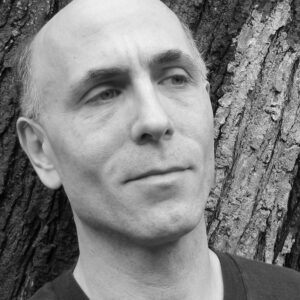
David Gaines
Both critics and other artists have recognized composer David Gaines (b. 1961) for his imaginative orchestrations and his uniquely international and eclectic style. His music, which has been performed across North America and Europe, includes two symphonies, concertos for baritone saxophone, trombone, and euphonium, plus a variety of chamber, choral, and electronic music. A graduate of Northwestern University, American University, and Johns Hopkins University's Peabody Conservatory of Music (where he earned a doctoral degree in composition), he has been a faculty member at The New School's online Master of Media Technology degree program via Connected Education, Inc., for which he created the first Internet university-level music course for credit (on the history of electronic music technology), as well as University of Maryland Global Campus (formerly University of Maryland University College), where he held the rank of adjunct associate professor.

John J. Craven
John J. Craven (b.1971) was enthusiastically drawn to listening to classical music, music theater, and popular music as a child. He studied piano and flute and began to compose at age 11. He was a winner in the Fourth International Aaron Copland Competition for Young Composers at age 12. He studied piano at the Peabody Conservatory of Music from 1989 to 1991. From 1992 to 1994 he received a B.A. in Communication Studies at the University of Iowa; in 1997 he completed a B.F.A. in music composition at SUNY Purchase. He returned to Peabody in 2009 to receive a M.M. in composition.
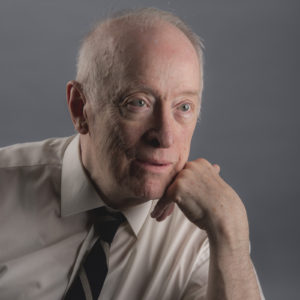
Michael G. Cunningham
A great artist can manifest answers to otherwise perplexing aspects of our world through their craft and help us find understanding. Composer, author, and long-time PARMA artist Michael G. Cunningham (1937-2022) was the embodiment of this truth, a prolific artist whose timeless body of work will resonate for years to come. From symphonies and other orchestral works to piano pieces, art songs, opera, choral compositions, and works for jazz ensembles spanning 11 Navona Records releases, Cunningham showed an unwavering dedication to sharing his music with the world. Upon receiving his doctorate from Indiana University, Cunningham embarked on an artistic journey that would lead him to write over 250 musical compositions spanning multiple genres, pedagogical music books, and more.
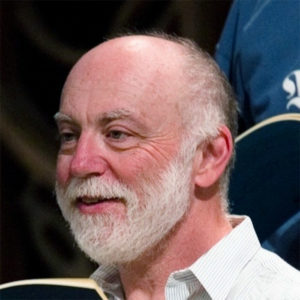
L Peter Deutsch
L Peter Deutsch is a native of Massachusetts, now living in Sonoma County CA, and British Columbia, Canada. He writes primarily for small instrumental or a capella vocal ensembles, spanning styles from devotional to romantic to jazzy, and from Renaissance to early 20th century. Works to date include four choral commissions; releases through PARMA Recordings include music for chorus, string quartet, woodwind and brass quintets, piano trio (featuring work with Trio Casals), and full orchestra.

Ryan Homsey
Ryan Homsey is a versatile, award-winning American composer, equally at home writing for instrumental and choral ensembles, theater, dance, and film. His background in classical, electroacoustic, and popular music draws inspiration from his history as a professional ballet dancer. Homsey’s works have been performed by JACK Quartet, PUBLIQuartet, Access Contemporary Music, ensemble mise-en, Duluth-Superior Symphony Orchestra’s Music to You String Quartet, Boston New Music Initiative, and the Orlando Contemporary Chamber Orchestra at such venues as the Taipei Cultural Center, the Museum of Natural History, the Metropolitan Museum of Art, HERE Arts, and National Sawdust.
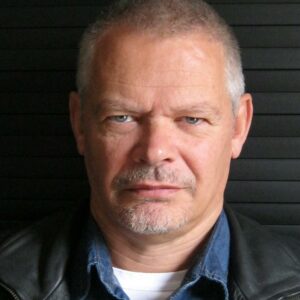
Hendrik Hofmeyr
Hendrik Hofmeyr, who has been described as South Africa’s most performed composer of Classical music, was born in Cape Town in 1957. He achieved his first major success as a composer in 1988 with the performance at the State Theatre of The Fall of the House of Usher, which won the South African Opera Competition and the Nederburg Opera Prize. In the same year, Hofmeyr, who was furthering his studies in Italy during ten years of self-imposed political exile, obtained first prize in an international competition in Trent with music for a short film by Wim Wenders. In 1992 he was appointed lecturer at the University of Stellenbosch, and in 1997 won two further international competitions, the Queen Elisabeth Competition of Belgium (with Raptus for violin and orchestra) and the Dimitri Mitropoulos Competition in Athens (with Byzantium for high voice and orchestra).
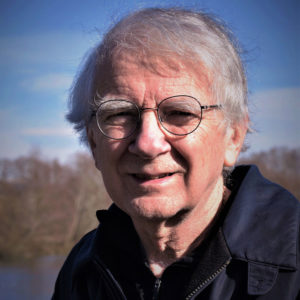
Richard E Brown
Richard E Brown, a native of New York State and has been active as a composer-arranger and music educator for many years. His training includes M.M. and D.M. degrees in composition from Florida State University, as well as a B.A. in music education from Central College, which named him a Distinguished Alumnus in 1983. His principal composition studies were with Carlisle Floyd, John Boda, and Charles Carter. He is a member of ASCAP and is represented in the catalogs of several trade publishers, as well as his personal imprint Dacker Music.

Kühn Choir of Prague
The Kühn Choir of Prague is one of the largest Czech choirs and has been part of the musical world for over 60 years. It devotes itself to the choral repertoire of all periods, and its activities include significant performances of contemporary music, performances of large vocal-instrumental works in collaboration with leading Czech orchestras and, last but not least, projects for the performance and recording of film music.

Lenka Navrátilová
Lenka Navrátilová studied piano and harpsichord at the Teplice Conservatory and choral conducting (sacred music) under the guidance of Jiří Kolář and Marek Štryncl at the Faculty of Education of Charles University in Prague. She is second chorus master of the Kühn Choir of Prague, professor of opera coaching at the Prague Conservatory, and répétiteur of the Prague Philharmonic Choir. As the assistant to the chorus master of the Prague Philharmonic Choir, she has participated in its appearances in Doha, Berlin, and at the Sankt Gallen opera festival.

Bree Nichols
Bree Nichols is a young American soprano praised for her “rich vocal disposition” (KlasikaPlus) and compelling stage presence. A Fulbright grantee to the Czech Republic, Nichols is known for her sensitive interpretations of Czech vocal music as well as over a dozen operatic roles spanning a diverse repertoire. Her career has taken her to the stages of Symphony of the Mountains, Capitol City Opera, Opera Roanoke, Lewisville Lake Symphony, Opera on the James, Opera Experience Southeast, the Olomouc Baroque Festival, and more.
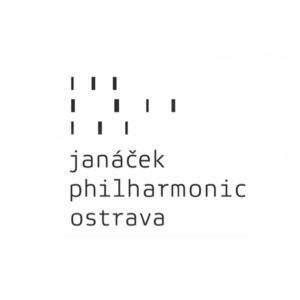
Janáček Philharmonic Ostrava
The Janáček Philharmonic is a world-class symphony orchestra based in Ostrava, Czech Republic and an emerging figure on the international performance scene. With over 100 top-level musicians, the orchestra aims to introduce unique, quality repertoire while showcasing their own recognizable sound.
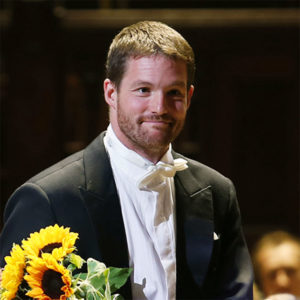
Jiří Petrdlík
Jiří Petrdlík (b. 1977) is appreciated as one of the most respectable conductors of his generation. He studied piano, trombone, and conducting — 1995–2000 at Prague Conservatory, and 2000–2005 at Academy of Performing Arts Prague — with Hynek Farkač, Miroslav Košler, Miriam Němcová, Radomil Eliška, and Tomáš Koutník, and took part in the masterclasses of the New York Philharmonic Principal Conductor Kurt Masur and the BBC Philharmonic Principal Conductor Jiří Bělohlávek. Petrdlík also successfully took part in several competitions, including the Donatella Flick Conductor Competition in London.
Alexandr Starý
Alexandr Starý, comes from the north Moravian city of Ostrava, where he studied the Janáček Conservatory with Marta Toaderová. He simultaneously attended the Gymnázium Olgy Havlové. After his secondary school studies, he graduated from the Faculty of Fine Arts, where he now works as an accompanist. His performing skills have been further enhanced by taking part in masterclasses of such esteemed pedagogues as Dimitri Bashkirov, Zoltán Kocsis, Marta Gulyás, and Andrzej Jasinski.
Notes
Videos
Richard E Brown - The Torment of Medea
